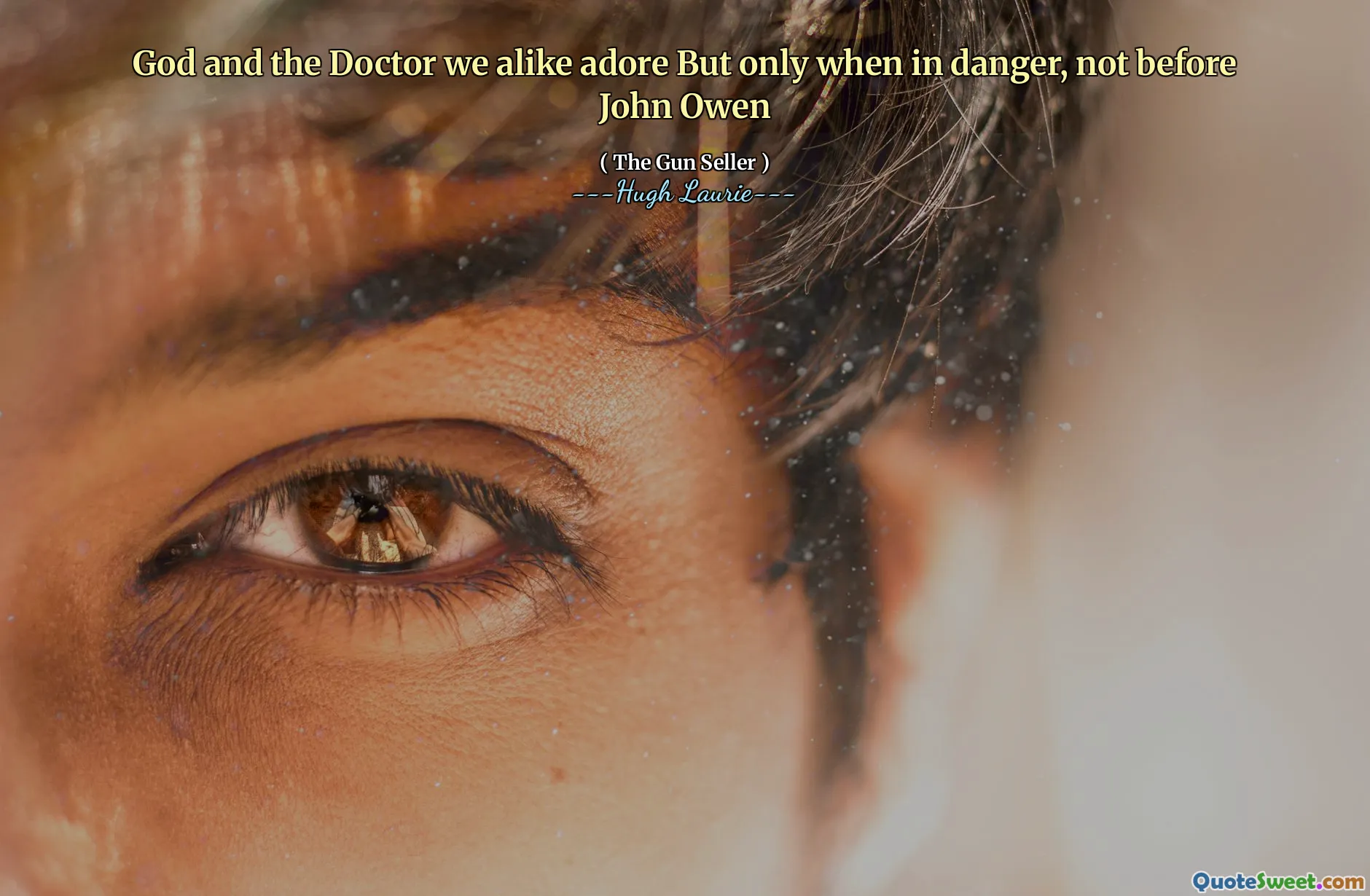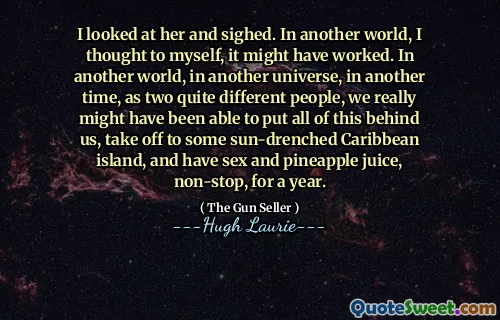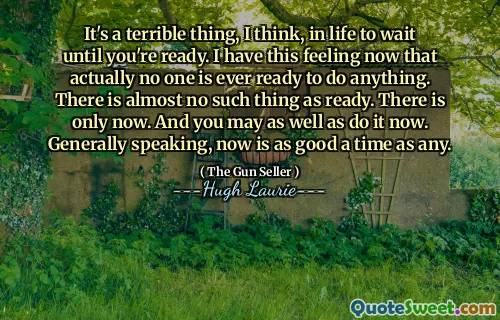
God and the Doctor we alike adore But only when in danger, not before John Owen
This quote insightfully captures a common human tendency to turn towards faith or help only in times of crisis. It highlights the paradox of human behavior: we revere both divine power and medical expertise, but often only seek their solace or intervention when faced with imminent threats to our well-being. It reflects on the conditional nature of our devotion and trust. When life is smooth, we may take the presence of both God and doctors for granted, neglecting gratitude until challenged by adversity.
Moreover, the quote prompts reflection on the broader implications of gratitude and acknowledgment. It suggests that admiration and respect might be superficial or selective when based solely on desperation. This perspective encourages a more mindful approach to valuing both spiritual belief and scientific care consistently, rather than intermittently driven by fear or necessity.
From a philosophical standpoint, it raises questions about loyalty and recognition—why do humans struggle to maintain appreciation in the absence of immediate danger? Could fostering continuous veneration of both spiritual and medical support systems lead to a healthier, more balanced life? John Owen’s succinct lines serve as a reminder to consider preemptive appreciation, which could potentially deepen our connection to and respect for forces that safeguard our existence.
In the context of Hugh Laurie's 'The Gun Seller,' while not a direct excerpt, the quote aligns well with themes of reliance, vulnerability, and the complex interplay between respect, fear, and dependency.








